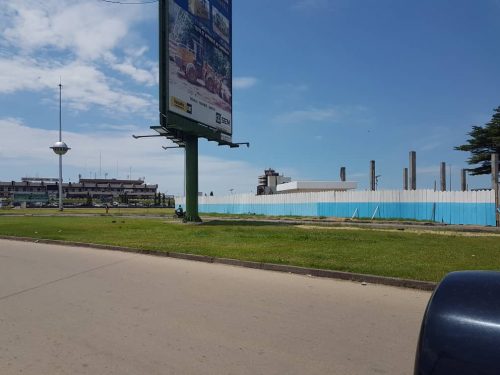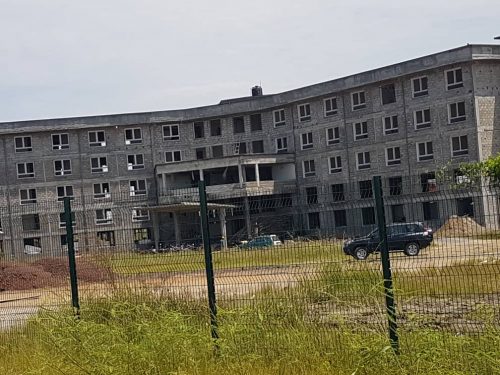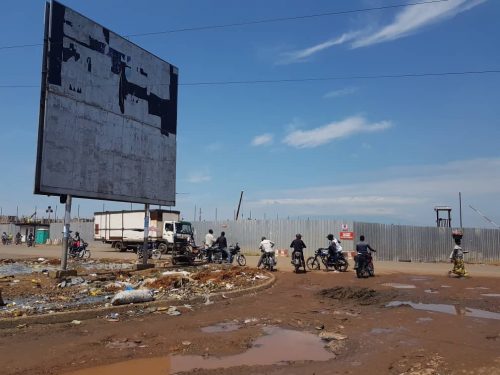The AFCON 2019 qualifiers will resume in a few weeks for the tournament slated for July 2019 in Cameroon. ACLSports.com investigations however show that the country is behind schedule in the construction of needed infrastructure.
“I seriously doubt that the AFCON 2019 will hold in this country in the summer” says our source in Yaounde, the capital city of Cameroon. There are 6 centres listed on the plan for the Tournament – as submitted by the LOC to CAF – Douala, Yaounde, Limbe, Bamenda Baffousam and Garoua.

“Of these” says our source “only 3 are viable due to the insecurity in the north and the Anglophone West. Plus, the crises has drained resources meant for the infrastructure so hotel and stadium constructions have effectively stalled. There is not a lot of time left”.

It has been well documented the situation with the Anglophone area of the country plus the opposition to the continued desire by President Paul Biya to seek another term in office. Another source says “the unsaid plan is for a big intervention after the elections once opposition voices have been effectively managed”. How those opposition voices will be managed will have to be seen.

A construction consultant says “if construction works have effectively stalled in Q4 of 2018, then it will be near impossible for the sites to be ready by the summer of 2019”.
SECURITY AND ANGLOPHONE AGITATION
Would teams coming to the 2019 Africa Cup of Nations feel safe playing in the Anglophone regions of Cameroon where separatists are waging a guerrilla conflict against government forces?
The authorities are confident they could provide enough security and have assured the Confederation of African Football (CAF) of a peaceful tournament. However, CAF remains skeptical and has deployed a team to the central African nation thrice to evaluate the situation on the ground. Two more visits are expected before the tournament kicks off on June 15.
Six venues in five cities are expected to be used for the 2019 AFCON. One of the host cities is Limbe, situated in the South-West region of Cameroon, which is one of the two Anglophone regions of the country, the other being the North West.
Both regions were under British rule but united with French Cameroun to form the Federal Republic of Cameroon in October 1961.
However, in 1972, the federal system of government was abolished in favour of a United Republic of Cameroon, with its capital in Yaoundé. That decision has been an apple of discord because people from the predominantly English-speaking Northwest and Southwest regions believe it reduced them to second class citizens as opposed to when they had ‘full rights’ under the federal system.
Since then, there have been unending tensions and agitations from the two regions, with growing calls for an independent state named Ambazonie or a return to federalism. The Ambazonie flag is visible in some villages in both regions, as animosity towards the central government heats up by the day.
“The tensions escalated into armed conflict last year when the government started replacing English-speaking civil servants with French speakers in key positions in the educational and judicial sectors,” Leonard Kum, editor in chief of HI TV and president, southwest chapter of Cameroon Journalists Trade Union, told ACLsports from Limbe.
“Due to the huge presence of government forces in both regions separatist fighters are turning to guerrilla hit and run method which is causing general fear in the regions,” he said.

Every Monday is declared ‘No Movement Day’, with all locals expected to be indoors. Schools, shops and public transport are shut down.
“You have to obey this because it comes from the separatists. If you don’t they might come to hit you later and loyalist force can’t help you. I close business every Monday,” said Michael Loa, a fuel station proprietor based in Bamenda, capital of the Northwest region.
The aforementioned situation is clear evidence that the separatist movement remains a force to be reckoned with amid plans by the government to deploy unprecedented heavy military troops to the regions during the 2019 AFCON.
“That is meant to impress and reassure the international community. We know what is happening on the ground. If the separatists say we don’t want you guys to go to the stadium to watch any games, we will listen to them. Because if we don’t we will find ourselves in trouble once the government forces leave. In between fear and support, people in these two regions endeavour to heed to instructions from the local masters,” Malick Awaka, a retired school teacher said from Buea, the regional capital of the Southwest.
In 2016, Cameroon hosted the Africa Women Cup of Nations in Yaoundé and Limbe. The local population in Limbe boycotted the tournament for fear not to be seen by the separatists as getting involved in a government-organised event.
And that could happen once more at the upcoming AFCON, according to Kum.
“If the authorities insist on using the venues in Limbe and the training facilities in nearby Buea, locals could boycott the tournament. There would be no involvement of the local population,” he said.
Cameroonian authorities have spurned recommendations from several lawmakers to relocate the 2019 AFCON venues from the Anglophone region to French-speaking Douala, the country’s most populous city. A source at the ministry of defence told ACLSports why.
“The objective of the separatists is to see the AFCON not holding in their regions, as a manifestation of their opposition to the central government. So, if we move the venue it would be a total victory for them.
“Secondly, as a government, we want to show the world through the AFCON that Cameroon is one and not divided. The separatists, whom we call terrorists, don’t have the military strength to withstand our forces and so they cannot disrupt the tournament,” said the source, who chose to speak on condition of anonymity.
The ongoing separatist insurgency in both volatile regions, home to 20 per cent of the country’s 23 million population, have led to the killings of 170 government forces and 400 civilians since end of 2017, according to the United Nations. No verified figures of casualties on the side of the separatists.
Some 246 000 people were forced to flee their homes, some still hiding in the bush, while some 25 000 others left their localities for eastern Nigeria, according to local and international NGOs.
In the North West, a dusk-to-dawn curfew is still in force, and might run throughout the AFCON.
In 2017, the government blocked access to the Internet for three months in both regions, which observers from both sides slammed as a measure too draconian towards the Anglophones.
However, with just one host city out of the five in the embattled region, many in Cameroon believe the 2019 AFCON would be threat free, but want the government to open a meaningful dialogue with the separatists and politicians in those regions in order to quell tensions ahead of the continental football fiesta.
“We don’t think the AFCON will be disrupted due to the security already in place and the authorities’ strong desire to show the world that there is peace in Cameroon. However, I think the best preventive measure is dialogue, amongst all stakeholder of the conflict. We must not allow what happened in Cabinda in Angola in 2010 happen to us,” Paul Joel Kamtchang, a journalist at Data Cameroon, told ACLsports from Yaoundé.
CAF Inspection officials are in Yaounde currently and their findings and conclusions will be very important if the tournament does go ahead in the central African country. Mr Amaju Pinnick, the Nigeria Football Federation President, CAF Vice-President and Head of AFCON Competition confirms the importance of the Inspection team when we put our findings to him. “I will wait for the officials there to finish their work and then I will study their report before any comments will be made”.
The AFCON is CAF’s flagship tournament but it has grown from one that it was so easy for countries to host with just two cities while playing host to 7 other countries. It went from 8 to 12 in 1992 to 16 and now for the first time, Cameroon are expected to host 24 countries.
Dr Peter Ntephe, an English FA registered media intermediary says “I think CAF needs to really have a proper look at the hosting and organisation of AFCON tournaments. The continent is not awash with strong economies that can host conveniently so they have to find a way round this to make it attractive for would be hosts”.
Additional reporting by Ewiro Toma










Great expose on Cameroun’s planned bid. What’s CAF’s Plan B?